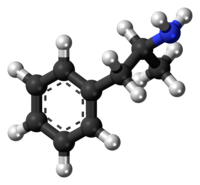
Photo from wikipedia
BACKGROUND Medication administration is a main role of nurses, and by mastering this skill, medication errors can be reduced. Simulation provides a safe environment for learning and improving medication administration.… Click to show full abstract
BACKGROUND Medication administration is a main role of nurses, and by mastering this skill, medication errors can be reduced. Simulation provides a safe environment for learning and improving medication administration. Simulation design may influence the students' learning curve and ability to transfer skills into the clinical setting. OBJECTIVE To examine the influence of simulation-based learning of the medication administration process, on satisfaction, self-perception of preparedness, and clinical performance of students who practice simulation either individually or in a group. DESIGN A comparative quasi-experimental study. SETTING A public university in southern Israel. PARTICIPANTS Third-year nursing students in two consecutive academic years (78 in the individual sample and 50 in the group sample). METHODS Nursing students participated in a scenario-based simulation for medication administration either individually or in a group. Self-reported questionnaires evaluated participants' satisfaction with the simulation experience, and perception of preparedness before and after the simulation. Faculty members observed and evaluated participants' medication administration during the simulation and in the clinical setting. Paired t-tests were performed to compare preparedness before and after the simulation experience. Linear regression models were formulated to elicit the predictors of preparedness after simulation and evaluations for medication administration in the clinical setting. RESULTS The simulation experience increased participants' preparedness both when designed for an individual student and for a group of students. Simulation performance was the main contributor to the participant preparedness among the individual sample (β = 0.51, p < 0.01), whereas previous preparedness was the main contributor among the group sample (β = 0.42, p < 0.01). The association between simulation performance and clinical performance was mediated by preparedness after simulation in the individual sample, but not in the group sample. CONCLUSIONS Simulation improves students' preparedness for medication administration. Individual simulation also impacts clinical performance, via preparedness. Further research is needed to identify other factors that facilitate skills transfer into the clinical setting.
Journal Title: Nurse education today
Year Published: 2021
Link to full text (if available)
Share on Social Media: Sign Up to like & get
recommendations!